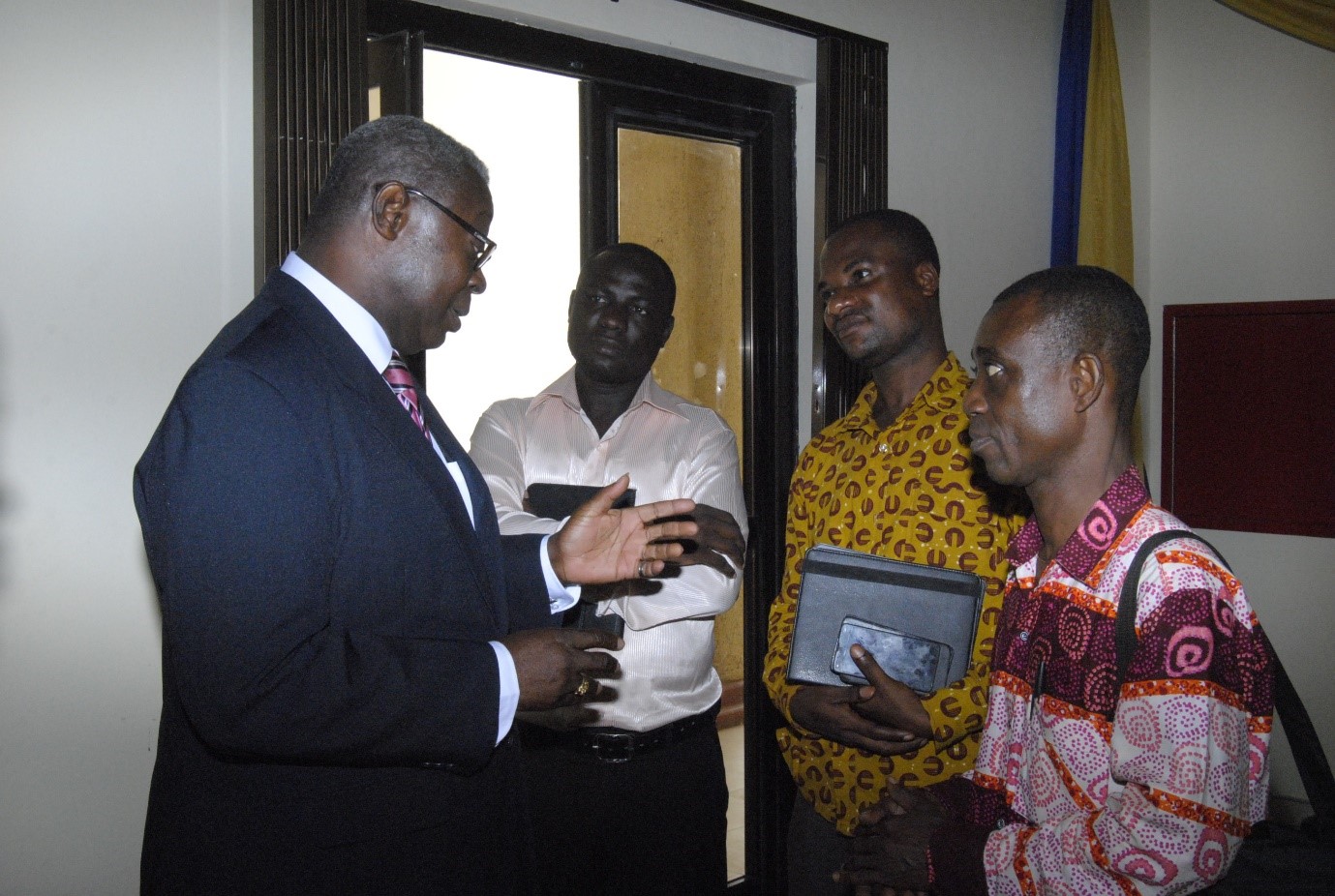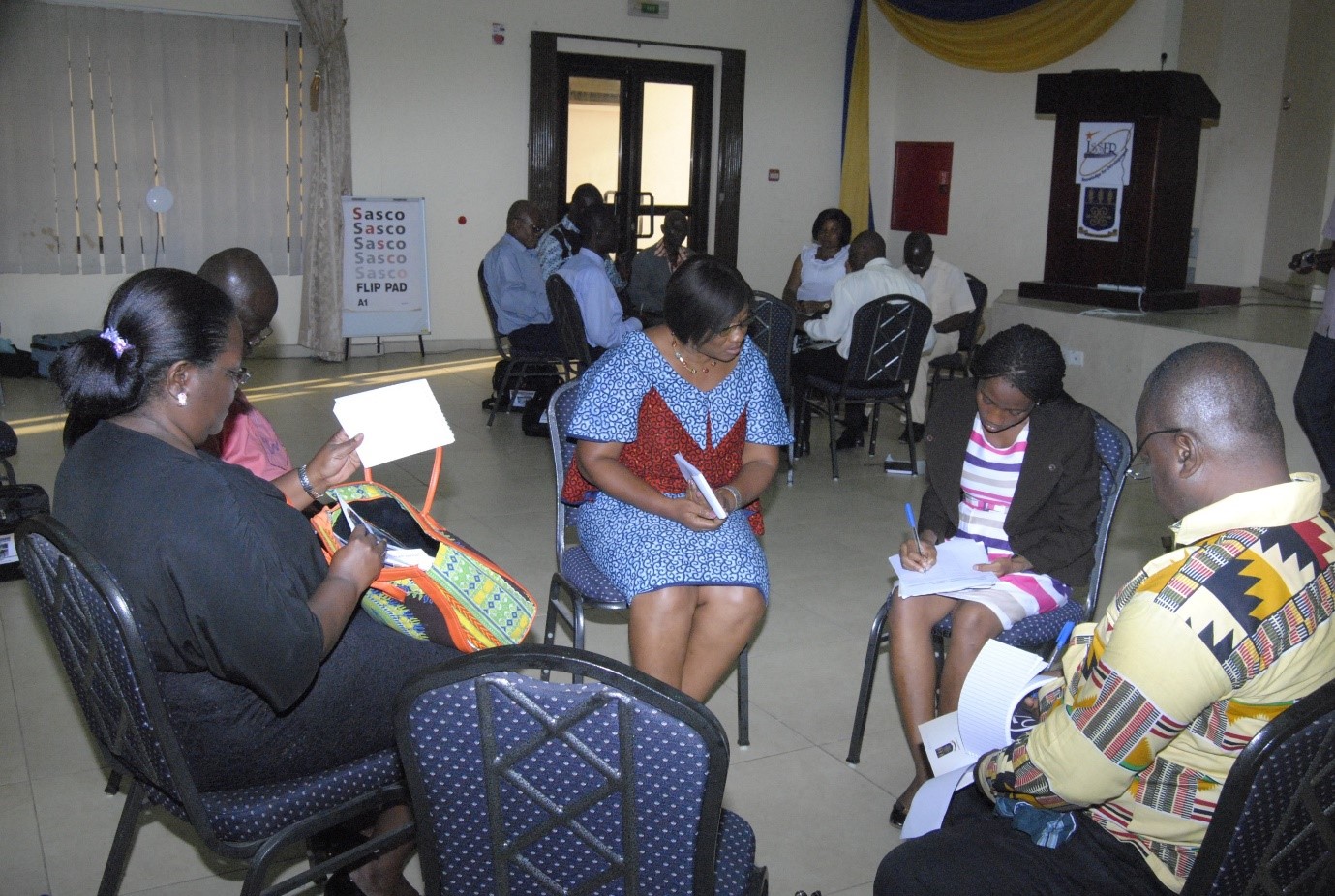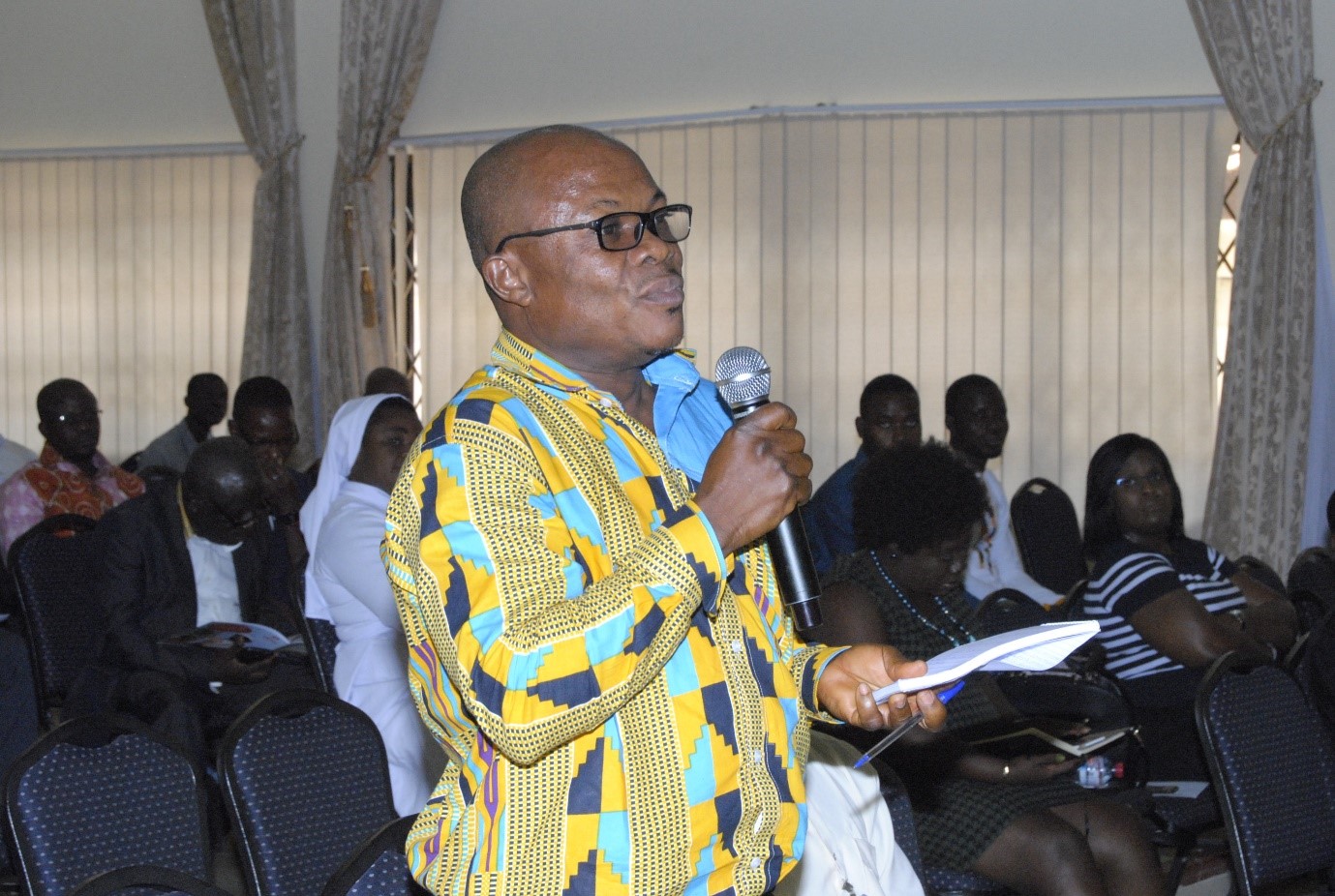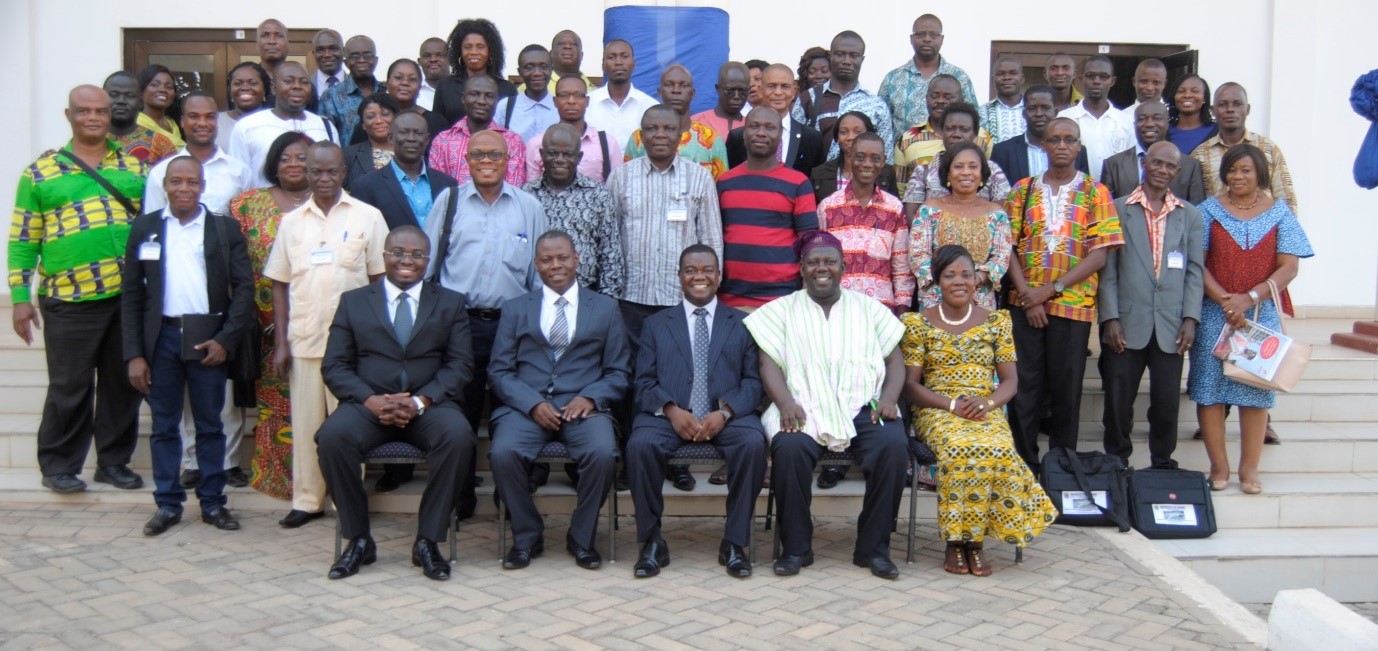



The 67th Annual New Year School, organised by the School of Continuing and Distance Education, College of Education has ended. The School brought together a total of 128 persons from various backgrounds and positions to deliberate on topics related to the theme: Promoting Universal Health for Sustainable Development in Ghana: Is ICT the Game Changer?
Setting the tone for the School during the official opening ceremony, the keynote speaker, Professor Richard Adanu, Dean of the School of Public Health, University of Ghana, noted that effective usage of ICT has the potential to improve Ghana’s health care systems, promote universal access to health care and improve health behaviours. He called for the increased use of information technology resources in various aspects of health care operations, and for universal knowledge on health problems and treatment through the creation of health care websites, mobile health alerts, tracking of medication-compliance, telemedicine, and increased use of text and voice innovations.
Professor Adanu called for inclusive responsibility on the part of government, health and ICT entrepreneurs and the University community to create the right environment for advocacy in health intervention strategies.
Building on the points raised in the keynote address, symposia, workshops and panel discussions were held during the five day School to further deliberate on the sub-themes:

Participants in discussion with Professor Agyeman Badu Akosa; a resource person

A discussion group at the 67th Annual New Year School
Speaking at the closing ceremony of the School, the Dean of the School of Continuing and Distance Education (SCDE), Professor Yaw Oheneba-Sakyi, noted that with technological advancements such as the proliferation and increased use of mobile phones and smartphones, increased internet coverage and the growing use of laptops and tablets by the Ghanaian populace, ICT can propel effective knowledge-sharing in order to achieve universal health coverage via voice and text messages, interactive training materials and cell phone linkages between frontline medical personnel, especially in rural areas and specialists in the cities.
The Dean noted that for the health sector in Ghana to be relevant to the 21st century knowledge-economy, it must be positioned to adapt rapidly, leverage technology, engage citizens, and deliver services in new ways. Therefore, identifying emerging trends for e-health should be an important part of strategic planning and preparing for the future of health care delivery in Ghana.

A participant making a submission during a session
In his remarks, the Provost of the College of Education, Professor Cephas Omenyo, observed that some have questioned the relevance of the New Year School as well as its impact in the area of policy formulation. He noted that over the past 67 years the Annual New Year Schools have offered a platform for civil society organizations and academia to dispassionately discuss issues of national importance. He stated that going by the deliberations and discussions that had taken place during the School, there is no doubt that the objectives of the annual School and Conference are still very relevant. What needs to be done is to restructure the School to attract more participants and also make the impact of the School more evident.
The Provost encouraged members to carry the ideas and knowledge they had acquired at the School to their workplaces and into their communities, and to take every opportunity to disseminate the ideas and recommendations raised in their social and professional networks, and as much as possible, implement the ideas and concepts discussed during the School in their work. He noted that it is through such interventions, coupled with the formal presentation of the communique detailing discussions and recommendations of the School, that the impact of the School will be truly felt.
He urged participants to see ICT as the game changer for the health sector, and pledged that the College of Education, through the School of Continuing and Distance Education, will continue to work with the relevant agencies to ensure that ICT indeed becomes the game changer for promoting universal health for sustainable development in Ghana.
The 67th Annual New Year School had as co-directors Dr. Samuel Badu-Nyarko, Dr. Michael Tagoe and Dr. Eric Osei-Assibey.

A group picture of participants and resource persons